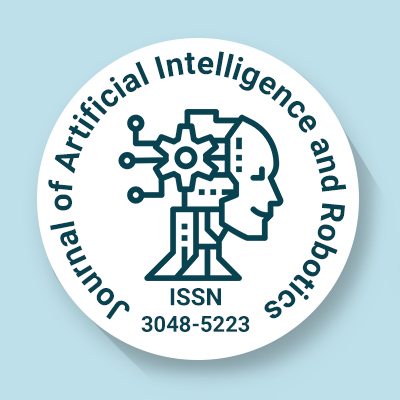
Journal of Artificial Intelligence and Robotics
OPEN ACCESS

OPEN ACCESS
.jpg)
Department of Biomedical Engineering, Silesian University of Technology, Gliwice, Poland
The human brain exhibits distinct neurophysiological responses during deceptive and truthful states, making it a compelling target for lie detection. Traditional polygraph-based approaches suffer from reliability issues due to their dependence on physiological arousal rather than direct brain activity. Brain-Computer Interfaces (BCIs) have emerged as a promising alternative, leveraging neuroimaging techniques such as electroencephalography (EEG) and functional magnetic resonance imaging (fMRI) to capture brain activity associated with deception. The integration of deep learning with BCIs has transformed the field of lie detection, offering advanced computational techniques for extracting deception-related neural signatures. Unlike conventional machine learning models, deep neural networks (DNNs), convolutional neural networks (CNNs), and recurrent neural networks (RNNs) enable automated feature learning, capturing complex spatial and temporal patterns in brain signals with unprecedented accuracy. The introduction of hybrid models, including CNN-LSTM and transformer-based architectures, has further expanded the capability of these systems, allowing for more refined deception classification. Additionally, generative models such as Generative Adversarial Networks (GANs) and Variational Autoencoders (VAEs) have been employed to address data scarcity by synthesizing realistic neuroimaging data, improving model robustness and generalization. Recent advancements in self-supervised and reinforcement learning approaches have demonstrated potential in enhancing adaptability and performance in real-world deception detection scenarios. The increasing use of multimodal fusion, integrating EEG, fMRI, and physiological data, promises to improve detection accuracy and reliability. However, several challenges remain, including ethical concerns regarding privacy, the need for large-scale, high-quality datasets, and the interpretability of deep learning models. Future research should focus on developing transparent and explainable AI systems while addressing ethical considerations to ensure responsible deployment in forensic, security, and clinical applications. The convergence of neuroscience, artificial intelligence, and cognitive science marks a transformative step toward the development of objective, data-driven deception detection technologies.
Department of Biomedical Engineering, Silesian University of Technology, Gliwice, Poland